In this interview, award-winning novelist and former missionary Mary Mendenhall talks about writing ‘stories with spirit’; combining intrigue with mystic spirituality, Christian faith, relationship drama, as well as emotionally-stirring tragedies and loss, multicultural issues, and a strong plot.
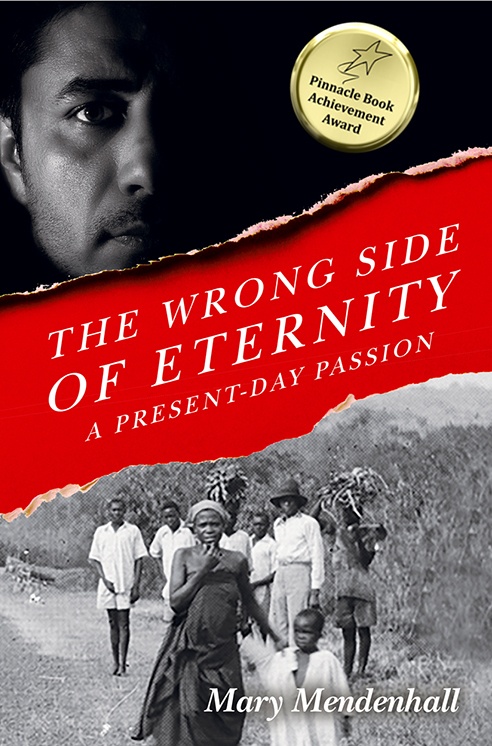
In my second novel The Wrong Side of Eternity, I show how people of Faith are transformed by societal suffering. Winner of the indie 2016 Pinnacle Book Achievement Award for historical fiction, this is a ‘missionary tale like no other’: Mexican-Irish Stephen O’Connell is no hero – in fact, it is two women who share that role in this ‘Present-Day Passion’ story.
Set in southwestern Uganda and West Coast America and split between the late 70s and the 1990s, this novel offers a multi-cultural complexity that appeals to readers craving paradox and perspective.
When I was living just across the border from the 1994 Rwandan genocide, I had the honor of hearing so many stories of courage, valor, and faith in the face of incredible suffering.
The novel grew out of shared experience. One pastor said, “This is our story”, and it is one that needs to be told.
The warm and accepting faith held by the book’s main characters is one I encounter in Franciscan circles, full of joy despite tragedy. Readers of Thomas Hardy and Andrew Greeley will find themselves in the familiar territory of celebrating people at their best when faced with the worst of circumstances. The story challenges and invites readers to not only ask questions of themselves but embraces those who don’t have all the answers: Stephen must face and accept his own uncertainties before he is of any use to anyone.
The 1994 Rwandan genocide was also the crucible for my first book, Michael, and the Ice Princess: A Mystical Romance, although in a very different way. I read the Christian mystics while trying to make some sense of the suffering next door, and ventured to distil their teaching into a fairy-tale plot.
The seed was a short story I had written for my fiancé years before, and the writings of mystics like Teresa of Avila and George MacDonald fit so well. I like to use a quote/epigraph at the onset of a chapter for texture and shadow.
I’ve dabbled in writing poetry, newsletter articles, reflections, short stories and journalism throughout a career juggling motherhood and developmental missions. Not formally trained, I’ve sought counsel from some great writers, and got to a place where the books could make me write them: as Madeleine L’Engle noted if your characters are sound and have dimension, you as an author can’t altogether control them!
My hope is that readers will find themselves and be encouraged.
Learn more about Mary on her website.
You can buy her books on Amazon.
Q: What inspires you to write?
I write from life experience and lots of reflection on the human condition. More mystic than existentialist, I see the glory and transforming love behind the most tragic of tales. I know that people have a brilliant capacity to overcome adversity because I have seen it in my patients with cancer and disability as well as hard-working Ugandans who persevere through tribal violence and worse.
Q: How did you become involved with the subject of your book?
I lived a mere eight miles from the Rwandan border, from the outset of the genocide there until 2000. This gave me close contact with locals who had lived through the time of Idi Amin. I was honored to hear their stories and felt their perspective needed to be told.
Q: What were your goals and intentions in this book, and how well do you feel you achieved them?
I kept in mind the mantra, “Be faithful to the Story” and this kept me from getting side-tracked. I wanted to offer a depiction of people heroically overcoming not only external situations but internal struggles with spirituality and sexuality, people who came out with hope and even a sense of joy.
Q: What was the hardest part of writing this book?
Having to face memories and re-live details of illness, loss, and violence; presenting these things without resorting to sensational drama or graphic description.
Q: What did you enjoy most about writing this book?
The overwhelming knowledge that people can face so much and not be destroyed by their suffering; the friendships with folks who could look life in the eye and actually smile and have peace in their hearts despite setback and tragedy. I admire them so! Also, the challenge to offer hope to readers who feel judged or dismissed by others, especially people of faith.
Q: What’s the strangest thing you have ever had to research online or do for your book?
My interview with a gun expert was way out of my comfort zone, but it was an area of ignorance and I needed pertinent details.
Q: Give us an interesting fun fact about a character in your book.
Madeleine, my antagonist, is surprised by the fact that she can actually find romance; she is too busy researching and proving others wrong most of the time.
Q: As a child, what did you want to do when you grew up?
I wanted to officially be a missionary nurse. But I never could leave the world of the performing arts alone, so I pursued a dual track of music, acting, writing, and teaching.
Q: At what age did you start writing stories or books?
I was eight when my third-grade teacher gave me a writing workbook to keep me from boredom.
Q: What was your first writing experience like? Do you remember what it was you wrote?
I wrote adventure stories akin to Batman and was highly embarrassed when my brothers found them and made fun of me.
Q: What kept you going..?
Reading good literature, mostly British and American poets; finding people along the way who WERE stories and listening to them tell about where life had led them. The loving persistence of G*D and the overwhelming discovery that if one knows one is loved, one can face anything.
Q: How has your environment, family & upbringing influenced your writing?
My father, a Lutheran pastor, had an ample library at home and of course wrote sermons. Unlike the father in A River Runs Through It, he was not strict when it came to mentoring me; he mostly let me alone (and did not dissuade me because I was a girl!). My mother engaged in drama and writing poetry in her youth and developed ‘bit’ dramas for the church. My environment was a blessed mix of Bay Area (the art world) and the natural beauty of the Sierra Nevada mountains.
Q: What writing courses/workshops/classes did you take? Can you recommend any specific writing books or classes to aspiring writers?
Although I attended writers’ conferences, I was helped most by writers Henri Nouwen (The Wounded Healer) and Elizabeth Sherrill (The Cross and the Switchblade; The Hiding Place), who wrote me letters while I lived in Africa and encouraged me. I read a lot of literature, differing genres, instead of formally pursuing writers’ training.
Q: Are you a full-time or part-time writer?
I write part time. Mostly because I have a brain illness which affects my ability to read and remember things.
Q: How many books have you written so far?
Two novels. I am working on a third, but a reflection/memoir this time.
Q: What genres do you write in?
So far, fiction. I have written scripts, newsletter articles, poetry, and lots and lots of journaling. I hope to expand to reflection/devotional and perhaps ghost-write for those lacking confidence in telling amazing stories.
Q: What are the titles of your other books?
The Wrong Side of Eternity and Michael and the Ice Princess: A Mystical Romance.
Q: What makes your writing special?
I like to engage the reader into filling in ‘blanks’: such as the physical appearance of my characters. I leave a lot to their imagination, providing minimal details. I like to prompt the reader to participate in the story emotionally and by provoking questions (foreshadowing). I mix adventure/romance with spirituality, not trying to describe the unseen but rather by hinting at the inward thinking of the characters. My writing is very cinematic, reading at times almost like a screenplay.
Q: What do you consider to be your best accomplishment?
Actually, winning the Washington State Hero Award for service among the mentally ill! Overcoming Lyme disease and Typhoid are also achievements in my book.
Q: What are your current projects?
The Dream of Saint Clare: Reflections on Divine Dependence, is what I’m working on now. No other novels in sight — but at any moment, one can claw its way into my head and make me write it.
Q: Do you ever suffer a writers-block? If so, how do you overcome it?
I am not disciplined enough to get writers-block. I write sporadically and when I have the strength and motivation to do so. I envy writers who have the financial and energy reserves to make a habit and regular practice of it. I must still work (as a nurse) to pay the bills. If I DID suffer from writers-block, I would likely take a walk or a longish hike into the hills: nature can often get me going again.
Q: What’s your process of writing a story?
For both books, the story was complete before I began. I wrote the first in segments, not always chronological, but as scenes would get my attention. I wrote the second with much more in the way of background research, and because its plot was much more complicated, took great care and time with the structure. I tend to scribble brief notes, then write madly, then edit, sometimes repeatedly. I aim for flow and an almost ‘read aloud’ story quality.
Q: What’s your favorite environment for creativity and productivity?
Encountering the Holy either in nature or a sanctuary. I will go on spiritual retreat, but there are times when I am riding a bus and have to grab a small notebook to jot down a phrase.
Q: What is your work schedule like when you’re writing?
I am too busy surviving to have one. I have not the luxury of leaving part-time nursing work to focus primarily on writing. I write as I go, as the need presents itself when invited to submit an article, etc. I am a little ashamed of this.
Q: Do you have any unique or quirky writing habits?
I like things to “sound” right, so I often will read aloud for cadence and pacing.
Q: Where do you sell your books?
I self-publish and sell my books on Amazon. I also visit local indie bookstores and provide them with a handful of promotional and or sellable copies. At present, I have no agent (he was hit by a truck), so I am self-published but very very picky about my own work.
Q: Do You Have and Agent/Publisher or Do You Self-Publish?
I self-publish.
Q: Tell us about your self-publishing experience…
I enjoy the autonomy I have self-publishing, but I would rather come under the umbrella of a high-quality publisher that appreciates the non-formula aspect of my work. Self-publishing is affordable but marketing the product is not!
Q: Have you been published in any magazines?
Church periodicals, primarily also local church newspapers (San Diego, CA).
Q: Have you won any book awards or writing contests?
In 2016 The Wrong Side of Eternity was the Pinnacle Book Achievement Award winner for historical fiction. I won a writing contest or two in high school.
Q: How has that helped you?
It has yet to help me. It’s a very, very competitive world out there. I am trying to get some mentoring help from a seasoned promoter.
Q: How do you promote and market your books?
Facebook, word of mouth, newspaper articles (author spotlights, press releases), flyers, and book signings. I am not a very capable promoter, partly due to limited energy.
Q: What is your advice to Indie Authors?
Get input from Beta readers. Take advantage of professional editing services.
Q: What are you really good at and love doing asides from writing?
I’m good at infecting people with enthusiasm for spiritual things! I preach to various Christian denominations, being licensed by the Episcopal Diocese of Spokane. And I love to make someone’s day, whether it be a patient in my nursing job or a sad-looking soul standing in line at the supermarket. I love people, can’t help myself.
Q: What do you like to do when you’re not writing?
Play pit orchestra (woodwinds), teach drama and music, walk in the forest and drink in the sound of running water. Bicycle, canoe, cross-country ski, when I have the strength!
Q: What are your favorite books? What authors do you admire?
I admire Thomas Hardy, Elizabeth Goudge, William Johnston, Andrew Greeley, Amy Carmichael, Don Richardson, and lots of unknown novelists who really know their craft. I am not very patient with hot-selling formula fiction of any genre.
Q: If you were deserted on an island, which three people would you want to have with you and why?
Oh, gosh, this is too hard. Any character from The Wrong Side of Eternity would make great conversation. From Michael and the Ice Princess, the blind lady Chantal. I guess I enjoy the company of whoever is in front of me. Too many wonderful people to pick from. I’d love to sit for tea with Henri Nouwen or Catherine Marshall (may they rest in peace).
Q: What would you do if you weren’t a writer?
Travel more, slowly and with some amount of comfort to offset the chronic pain.
Q: What are your big dreams and goals?
To make a happy difference among the people I meet; to manifest the ever-loving presence of G*D, to own my little house and enjoy the beauty of nature. To share mystical spirituality with other women, for the sheer joy of it.
Q: What do you love best about an author’s lifestyle and being an author?
I wouldn’t know, I’m too busy being a nurse and preaching. Some day, I hope to know what that is about.
Thank you, Mary Mendenhall, for taking part in our interview!

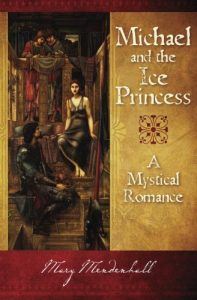
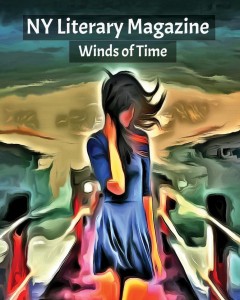
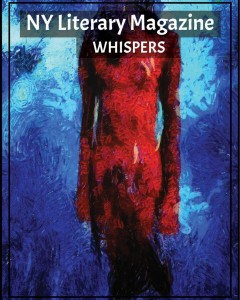
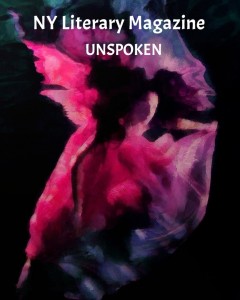
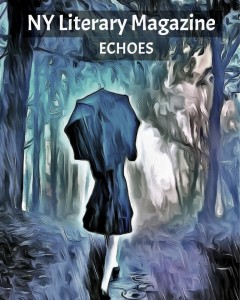
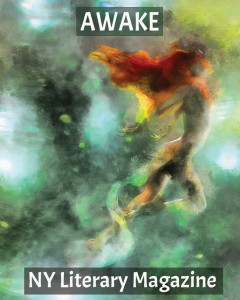
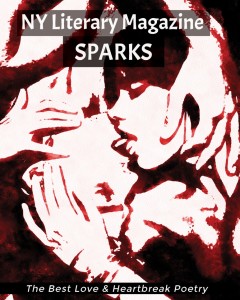
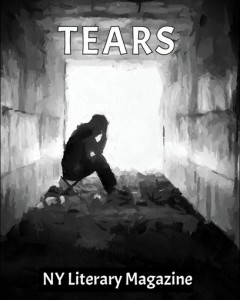
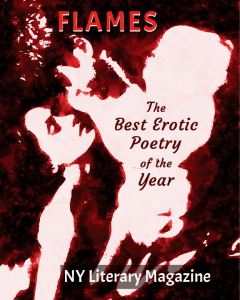

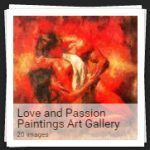
Leave a Reply
You must be logged in to post a comment.